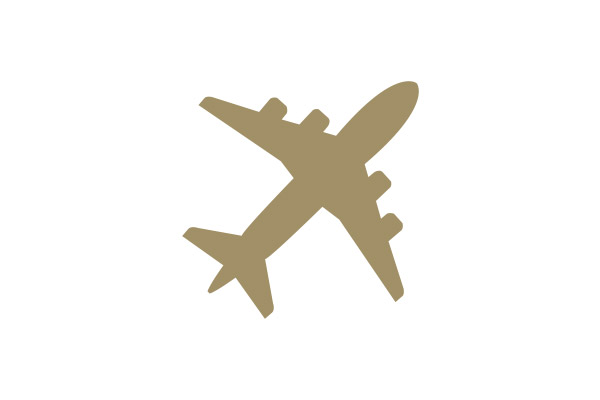More than a month has passed since the tragic incident of the Ethiopian Airlines crash and the global grounding of 371 Boeing 737 MAX aircraft. While it was initially thought that the aircraft manufacturer would provide a quick fix to the Manoeuvring Characteristics Augmentation System (MCAS) software issue, information gathered from the investigations has pointed to a longer than expected lead time, with the earliest potential return to service date extending beyond airlines’ peak summer season. The situation is far from desirable, yet the changes in market dynamics have yielded opportunities for the MAX’s predecessor, the 737 NextGen.
The World’s Most Popular Narrowbody Aircraft
The Boeing 737 is the most-produced jet-powered commercial aircraft in the world with more than 10,000 aircraft delivered. Introduced in 1997, the NextGen, or NG, is the third-generation derivative of the 737 series – quieter and more fuel-efficient, with greater range, payload and performance capabilities than its predecessor, the 737 Classic.
In 2011, Boeing publicly announced the NG’s successor, the MAX. Leveraging the commercial success of the previous 737 series, the MAX has become the fastest-selling Boeing aircraft in history, booking over 5,000 orders to date.
First deliveries of the MAX commenced in May 2017, initiating airlines’ transition towards the new series and their gradual exit from aging NG aircraft.
Grounding and Software Certification
Following the MAX’s grounding by global regulators in the wake of the Lion Air and Ethiopian Airlines accidents, Boeing has now completed development of the MCAS software update, and will be submitting the upgrade data to the FAA for certification this week.
However, Boeing will still need to satisfy regulators from the UK, Europe and Canada, who have announced they may do their own safety verifications before letting the MAX fly again in their jurisdictions, rather than simply accepting the FAA’s certification.
Airline Reactions
Much uncertainty remains as to when the MAX will resume commercial operations. Over the past several months, airlines have been forced to make certain spot fleet decisions to mitigate the cost and risk of flight schedule disruptions for the peak summer season.
- Singaporean carrier, SilkAir, suspends the transfer of 14 B737-800s to fellow Singapore Airlines Group member Scoot
- SpiceJetannounced it will lease 16 737-800s to help reduce the grounding impact and in its expansion in the domestic and international markets
- Emirati carrier Flydubai cancels flights and adjusts its schedule to minimise disruption to passengers caused by the MAX grounding and will continue to operate flights with its 46-strong 737-800 fleet
- Go2Sky wet leases three 737-800s to LOT Polish Airlines to prevent LOT flight schedule disruptions cause by the grounding of the Max
- LOT Polish Airlines wet leases an additional two 737-400s, as well as one 737-300 and one A320, to cover for its five grounded MAX aircraft (pay wall)
The Ideal Capacity Solution
Airlines have several options to consider in successfully and efficiently replenishing available capacity and mitigating against the cost and risk of flight schedule disruptions caused by the grounding of the MAX.
Purchase or Operating Lease of Similar Aircraft Types
Suitable replacement aircraft for the MAX essentially boil down to three aircraft families: the 737 NG, A320ceo, and A320neo, all offering similar capacity and range capabilities.
Out of the 71 MAX operators, 67 are also 737 NG operators, so, not surprisingly, migrating back to the NG is the most natural fit and the NG has seen the bulk of action regarding capacity replacement for the MAX.
However, while deferring 737 NG retirements is an effective solution, those who acquire additional units for the sake of capacity replacement, rather than growth, run the risk of overcapacity following the MAX’s return to service.
Conversely, only 7 of 71 MAX operators are also A320ceo operators. Given the considerable investment of resources required to induct a new aircraft type and the anticipated short-medium term grounding of the MAX, there has been little movement in MAX operators inducting A320 family aircraft as replacement capacity.
The same arguments apply to the A320neo, with the additional considerations of lead-time to delivery and lack of secondary market due to the newness of the type. Airbus presently has a backlog of over 5,800 A320neo aircraft, essentially removing this option from the table given the time-sensitive nature of the MAX groundings. And, while operating lessors present a faster path to aircraft acquisition, having placed their own forward orders with Airbus, they too have already found homes for their delivery slots for at least one year out.
Wet Leasing (ACMI)
ACMI leasing offers several attractive features, such as rapid entry into service and no requirement for investment in fleet or crew infrastructure, which make it the ideal capacity solution for situations such as the MAX grounding.
ACC Aviation’s market-leading ACMI leasing division has seen unprecedented demand as airlines look to secure interim solutions to cover their on-going and upcoming schedules, without committing to unnecessary long-term capacity. ACC has concluded ACMI contracts with various aircraft types, including the 737 NG, A320ceo, 737 Classic and even widebody types such as the 767 and A330.
While the market has registered several secondary market acquisitions and leasing transactions, as well as deferred retirements, the flexibility afforded by wet leasing for short-term to medium-term operational constraints means it is expected to remain the most favoured capacity solution.
Impact on 737 NG Values, Lease Rates and Economic Lives
The surge in demand and tightening of supply for 737 NGs in the wake of the MAX groundings means market values and lease rates are trading above their natural base values by approximately 2% (-800) versus at base for the A320ceo, which has been less affected by the MAX issues.
The present reduction in production rates of the MAX will continue to support 737 NG market values in the short to medium-term, however, provided the MAX returns to service within a reasonable period, the long-term economic life and value curve of the NG is not expected to change.
And, while several carriers have suggested they are considering cancelling orders for the MAX, the 5,800+ order-strong backlog for the type remains robust.
For more information on aviation consultancy and our services, make an enquiry, speak with one of our experts on +971 4 250 0373 or email consultancy@ACCaviation.com.





